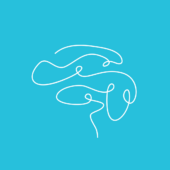
Postpartum Depression therapists in St. Catharines, Ontario ON, Canada CA

Corrine Wilde, Wilde Psychotherapy
Registered Psychotherapist, RP
Postpartum depression affects more people than most people realize. Feeling alone or inadequate to care for your new child is quite daunting. Talking about how you are feeling and finding new ways to cope, will help you to not feel so helpless and provide the strength to manage the changes to your life that this new person has introduced.
Richa Quinn (Healing Pathways Counselling)
Registered Psychotherapist, Registered Psychotherapist, MBA, MACP, CCC
The experience of postpartum depression can be unsettling and distressing. Getting therapy is essential for both you and your baby's health. As a mother of wow children, I am familiar with postpartum issues and am eager to collaborate with you to overcome them.
Sierra Goldfinger
Registered Psychotherapist, RP (Qualifying)
Mental health challenges during pregnancy, or the first life of your child’s life are common. You are not alone and you are not to blame. Often, ideas of pregnancy and parenthood can be romanticized while your personal experience can feel both overwhelming and daunting. While I do not offer therapy for pregnancy and postpartum depression, at Psychotherapy Collective, our online clinic, we have therapists who are well positioned to support you. Visit https://www.psychotherapycollective.ca/areas-of-focus/pregnancy-postpartum and book a free 15-minute consultation today.
Michelle Directo
Registered Psychotherapist, MDiv, RP, ExA
After the delivery of your child, the body continues to go through changes, physiologically, emotionally, psychologically, and socially. These changes may feel confusing, overwhelming, and undesirable. Intense emotions of joy, anxiety, fear, sadness, and happiness may be felt all at once. The lack of sleep, pain associated with breastfeeding, lack of support, crying frequently are all symptoms that are important to talk about. Dads can also experience depression. Let us work together to help you how to best manage these changes.
Katja Tupak
Registered Psychotherapist, RP (Q), M.Ed. (Counselling Psychology and Psychotherapy)
We offer a wide range of psychotherapy treatment to ensure that you feel safe navigating through your journey.
Mind By Design®
Registered Psychotherapist, Psychology and Coaching Clinics
Although it is normal to have what is colloquially known as the “baby blues” following the birth of a child, this tends to naturally go away not too long after. PPD can start during the pregnancy to one year after the birth of a child, where the sufferer will show the typical effects of depression which affects their mood; the way they feel about themselves, how they relate to others, and how they interact with the rest of the world. Ultimately, PPD affects people from many different walks of life, regardless of the ease or difficulty of the pregnancy, whether they are a first-time parent or have other children, whether they are married or not, and regardless of socioeconomic status, education, and cultural background.
LifeCycle Counselling
Registered Psychotherapist, MACP, MPE, RP
Perinatal mood disorders may also be referred to as Perinatal Mood and Anxiety Disorders (PMAD). Perinatal mood disorders are related to mood symptoms that occur during pregnancy or up to one year postpartum. The most common types of mood disorders are depression, dysthymia, anxiety, and postpartum post-traumatic stress disorder. There can also be Bipolar Disorder, Postpartum Psychosis, or substance-induced mood disorders that may appear.
Forms of psychotherapy that have been found to be helpful and effective in helping treat perinatal mood disorders include: Cognitive Behavioral Therapy, Interpersonal Therapy, Psychodynamic Therapy, and other forms of supportive psychotherapy. These forms of therapy can help focus on emotions and thought patterns, but also behavioral aspects. These approaches can help increase and rediscover the bond between parent and child, and also between partners.
Book an appointment today! Perinatal mood disorders can cause avoidance behaviors, create harmful thought and behavioral cycles and negatively impact your mental health. It is important to seek help from a mental health professional in order to help you manage and alleviate your symptoms. Perinatal Mood Disorders and Maternal Mental Health is an area that LifeCycle Counselling specializes in. Call us today or book an appointment to get started! Please visit our Maternal Mental Health section for more details.
Satvinder Khurme
Registered Social Worker, MSW, RSW
Postpartum Depression may start any time within a month or year after childbirth and lasts for weeks or months. In some serious cases it may progress to chronic episodes of depression. Early professional help is advisable.
Roots in Wellness Affordable Therapy Program
Registered Psychotherapist, CRPO, (CERT) OAMHP
We have practitioners who are passionate about helping individuals with fertility issues, parenting, and more.
Melissa Letourneau
Registered Psychotherapist, RP
My approach is grounded in authenticity, trust, and often humour. I believe you have the wisdom to navigate life’s challenges and I strive to help empower you to facilitate change in therapy. Therapy is a great step in accessing support when struggling during pregnancy or the postpartum period. It also provides a safe space to acknowledge your difficulties. I work with individuals, couples, children and families offering a free consultation to ensure we are a good fit. I carry a systemic lens, exploring the way culture, community and family shape our experiences and aspirations. I am committed to strength-based and anti-oppressive practice in my work. I recognize the importance and responsibility I have as a therapist, to address the systemic inequalities impacting clients in their lives.










